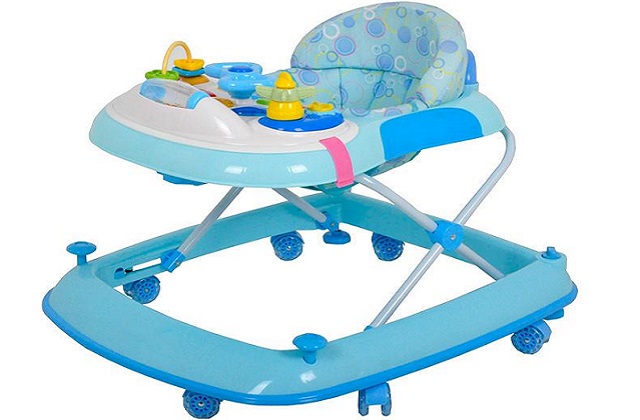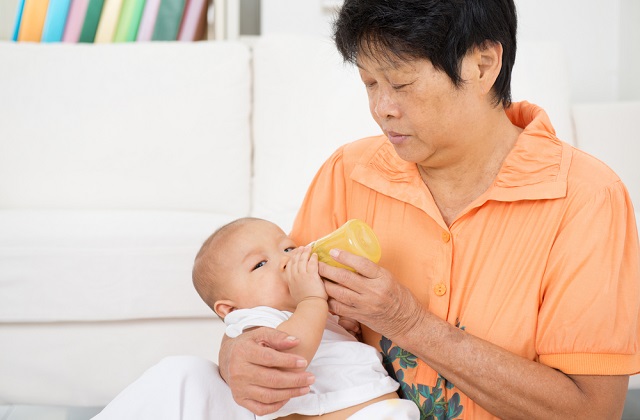Baby Walker: Is it necessary?
Most of the young parents we spoke to believed that baby walker can help their little ones learn how to walk. Surprisingly, the truth may not be what these young parents think.
Baby walker does not help your baby to learn to walk
Typically, baby can walk at the age of 10 months to 15 months.
Many studies have indicated that the baby walker actually does not help baby learn how to walk. Using one too often like two hours a day may actually delay this development milestone slightly. Some of these studies show that baby who used baby walker may learn to walk one month later than those who do not.
Two possible reasons for this could be this: babies between 6 months and 12 months old have a strong urge to walk. They will explore and learn to make this happen. When they are placed in a baby walker, they can easily satisfy their curiosity without developing their balance and walking skills as baby walker makes it easy to walk.
Second, babies learn to walk in part by watching and understanding how their feet and legs move. If a walker has a tray (almost all have one), they can't see what's happening with their lower body and don't get the information they need about their motor development.
Most of the professional or organization in the field also advise parents not to use baby walker. This include hospitals in Singapore and the American Academy of Pediatrics.
In fact, Canada is one of the country where all types of baby walker are banned.
Dangers of using baby walkers
Many parents use baby walker because they believe it is safer for babies to be inside a baby walker than crawling on the floor on their own while parents are busy with household chores.
Some parents buy baby walker out of consideration of safety for the children. Modern furniture has many sharp corners or sharp edges, it will harm the baby seriously if the baby fell on them.
Although all these claims are true, baby walker itself poses other dangers for baby. Parents therefore should not just let their children cruise on their own on baby walker without any supervision.
Safety experts and health professionals strongly discourage the use of baby walkers, because of the number of accidents and injuries the baby walkers have caused.
Baby walkers are dangerous because they give babies extra speed, extra height, and access to many hazards. They are also unstable on uneven surfaces.
Most injuries are caused by falls when the baby walker tips, and the baby is thrown downstairs, or crashes into furniture, heaters, or ovens.
There is also an increased risk of your baby being burnt by previously out-of-reach objects, such as candles and cups of hot drinks. A baby walker also allows your baby to reach household poisons, such as perfume or alcohol, left at a previously safe level.
You may feel that if your baby were occupied in her walker, she could be left unwatched for short periods. In reality, extra care is needed when your baby is in a walker. Even with supervision, accidents in baby walkers can easily occur. A baby in a baby walker can travel one metre per second, so an accident can happen before you are able to stop it.
Baby walker can also cause atypical walking pattern
The baby's legs are not straight when "walking" in the walker. The hips and knees are bent and he/she will tend to walk on tiptoe. This causes baby to use and develop the wrong leg muscles for walking. Such walking pattern may be difficult to correct even when baby is out of the walker.
Studies have shown that walking pattern of babies worsen with the use of walkers especially if they are already walking in atypical ways.
How can I encourage baby to learn to walk?
There are many ways in which you can encourage your baby to walk or really help him or her to walk.
First, you can encourage your baby to walk by standing in front of him, holding both his hands as you help him walk towards you.
Second, you could also buy him a play center or a similar toy that he can hold on to and push. Make sure the play center and toys are stable and have a wide base of support.
Lastly, massage your baby, this can help to provide sensory stimulation.
It takes a village to raise a child !
Join our WhatsApp Parenting Chat Groups By Area in Singapore.








